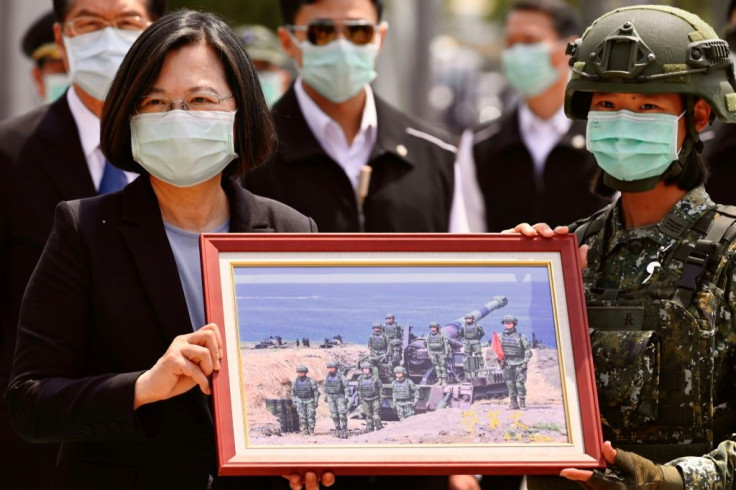Taiwan Tells WHO To 'Cast Off' China's Control During The Coronavirus Pandemic

Taiwan’s Foreign Ministry spokeswoman Joanne Ou told the World Health Organization (WHO) to "cast off" China as its representative. The reasons for her demand are China’s treatment of the island nation as one of its provinces and the WHO’s recognition of China as the representative agent on Taiwan’s behalf.
Ou told reporters Tuesday (April 5), "Only the democratically-elected Taiwanese government can represent Taiwan's 23 million people in the international community. The WHO should cast off the Chinese government's control and let Taiwan fully participate in fighting the virus. Do not let China's improper political interference become an obstacle to impeding the world's united fight against the virus."
Taiwan’s lack of official representation to the WHO dates to Oct. 25, 1971. The WHO is the health agency of the United Nations (UN). On that day, the UN General Assembly voted to admit mainland China and to expel Taiwan. China filled Taiwan’s vacated place in the General Assembly and was also named as one of the five permanent members of the U.N. Security Council.
Steven Solomon, who is the WHO's principal legal officer, said Monday that the position of WHO toward Taiwan is in keeping with the 1971 U.N. policy. He passed off the question of Taiwan's attendance as a decision to be made by the WHO's 194 member states.
The most recent tensions stem from a December, 2019, email that Taiwan sent directly to the WHO asking about the person-to-person spread of COVID-19. Taiwan concludes that the health organization ignored the email and that their refusal to communicate with Taiwan directly created a lapse in the efforts to fight the coronavirus.
China had a cozy relationship with Taiwan from 2009 until 2016 and did not stop Taiwan from attending the World Health Assembly (WHA) as an observer. That “coziness” ended after the election of Taiwan President Tsai Ing-wen, who China views as a separatist. The president denies that she is against reunification but that may be out of political necessity rather than her actual views.
Once again Taiwan has been lobbying to attend as an observer at this month's meeting of the (WHA), but sources say China will block the move.
The WHO is denying that Taiwan ever alerted them to the potential person-to-person spread of the virus, but this is likely a dispute over the language used in the communications. Before the disease was named COVID-19, Taiwan’s CDC described it as "atypical pneumonia" – reminiscent of SARS, which is transmitted via human contact."
Taiwan said in a press release saying that public health professionals should be able to discern from this wording that there was a “real possibility of human-to-human transmission of the disease”. But they also admitted that "…at the time there were as yet no cases of the disease in Taiwan, we could not state directly and conclusively that there had been human-to-human transmission.”
The lines in the sand have been drawn. The U.S. has strongly supported Taiwan's participation at the WHA as an observer, adding another point of friction between Washington and Beijing.
President Donald Trump has already threatened to pull U.S funding of WHO over his administration's criticism of how China and the WHO have handled the outbreak. One example is the WHO’s failure to demand that Chinese officials share the viral strains that would have allowed diagnostic tests to be created significantly earlier.
The positive story coming out of the bureaucratic and political wrestling match is that Taiwan has reported far fewer cases of the COVID-19 compared to its neighbors, due to early and effective detection and prevention work.
© Copyright IBTimes 2024. All rights reserved.





















